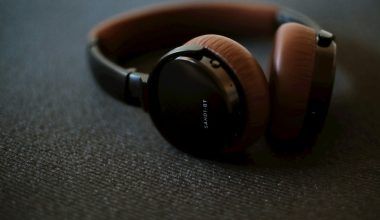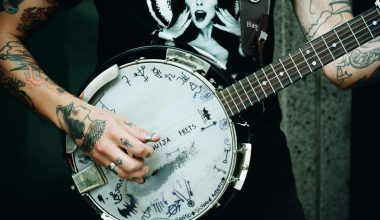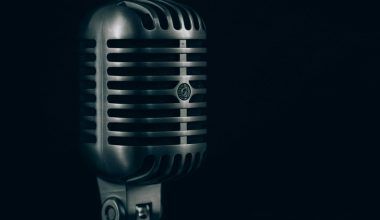Why You Need the Right Mic for Singing
Every singer knows how important it is to sound good. But did you know the microphone you use plays a big role in how your voice is heard? Whether you’re singing at home, performing on stage, or recording in a studio, the right mic can bring out the best in your voice.
In this guide, we’ll help you find the best mic for singing, explain what makes a mic great, and share some of the best options for every situation and budget. Let’s make your voice shine!
Understanding Microphones: The Basics for Beginners
What Does a Microphone Do?
A microphone captures sound and turns it into an electrical signal. For singers, this means your voice is captured and amplified or recorded. A good microphone makes sure your voice sounds clear, warm, and natural.
Types of Microphones You Should Know
- Dynamic Microphones
- What It Is: Tough and reliable, great for live performances.
- Why It’s Good for Singing: It handles loud sounds without distorting your voice.
- Example: The Shure SM58, often called the “king” of live microphones.
- Condenser Microphones
- What It Is: Sensitive and detailed, ideal for recording studios.
- Why It’s Good for Singing: It captures every little detail of your voice, making it sound professional.
- Example: The Audio-Technica AT2020 is an affordable and popular choice.
- USB Microphones
- What It Is: Easy to connect directly to your computer.
- Why It’s Good for Singing: Perfect for beginners recording at home.
- Example: The Blue Yeti is simple to use and sounds great.
What Makes a Microphone the Best Mic for Singing?
Not all microphones are the same. Here are some key things to look for:
1. Sound Quality
Your mic should make your voice sound natural and full. It shouldn’t add weird effects or distort your voice.
2. Durability
If you’re performing live, you’ll need a mic that can handle a few bumps. Dynamic mics are usually sturdier than condenser mics.
3. Polar Pattern
This is how a mic picks up sound:
- Cardioid: Picks up sound from the front and blocks noise from the sides and back.
- Omnidirectional: Picks up sound from all directions.
- Figure-8: Picks up sound from the front and back, great for duets.
4. Budget
You don’t need to break the bank to find a great mic. There are amazing options for every price range, whether you’re starting out or a professional.
Top Picks for the Best Mic for Singing
Let’s dive into some microphones that singers love. These are grouped based on your needs.
Best Mic for Live Performances
- Shure SM58
- Why Singers Love It: It’s tough, reliable, and sounds great.
- Price: Affordable, perfect for beginners and pros.
- Sennheiser e935
- Why Singers Love It: Excellent clarity and feedback rejection.
- Price: Slightly more expensive but worth every penny.
Best Mic for Studio Recording
- Audio-Technica AT2020
- Why Singers Love It: It’s budget-friendly and offers professional-quality sound.
- Price: Affordable for home studio setups.
- Neumann TLM 103
- Why Singers Love It: This is for serious professionals who want the best.
- Price: Expensive but delivers incredible sound quality.
Best USB Mic for Beginners
- Blue Yeti
- Why Singers Love It: Easy to use, plug-and-play, and sounds amazing.
- Price: Mid-range, great for home recording.
- Samson Meteor Mic
- Why Singers Love It: Compact and portable, with solid sound quality.
- Price: Budget-friendly.
Choosing the Right Mic for You
Finding the best mic for singing is personal. Here’s how to decide:
1. What’s Your Goal?
- Live Singing: Go for a dynamic mic like the Shure SM58.
- Recording at Home: A condenser mic like the Audio-Technica AT2020 is great.
2. What’s Your Budget?
- Under ₹5,000: Behringer XM8500 or AKG P120.
- ₹10,000 – ₹20,000: Rode NT1-A or Audio-Technica AT2020.
- Above ₹50,000: Neumann TLM 103 or Shure KSM9.
3. Test Before You Buy
If you can, try singing into the mic. Different voices suit different microphones.
Tips to Get the Most Out of Your Mic
1. Use a Pop Filter
This reduces harsh sounds like “P” and “B” that can overload the mic.
2. Keep the Right Distance
For most mics, staying 6–12 inches away is ideal.
3. Invest in Accessories
A good stand and shock mount can make your setup more professional.
4. Protect Your Mic
Store it in a case when not in use, and avoid exposing it to moisture.
Fun FAQs About Singing Microphones
Q: Do expensive mics sound better?
Not always! A mid-range mic like the Shure SM58 or Audio-Technica AT2020 can be perfect for most singers.
Q: Can I use the same mic for singing and instruments?
Yes, some mics like the Shure SM57 work well for both vocals and instruments.
Q: What’s the easiest mic for beginners?
A USB mic like the Blue Yeti is simple and requires no extra equipment.
Final Thoughts
Finding the best mic for singing isn’t just about price or brand—it’s about what feels right for you. Whether you’re performing live, recording a new track, or practicing at home, there’s a microphone that can make your voice shine.
Remember, the microphone is just a tool. Your voice and passion are what truly matter. Choose the right mic, and let the world hear your music the way it was meant to be heard!
Related Articles:
For further reading, explore these related articles:
- Using Apple Music Analytics to Grow Your Fanbase
- The Importance of High-Quality Cover Art on Apple Music
- Understanding View Velocity and Its Impact on YouTube Trends
For additional resources on music marketing and distribution, visit Deliver My Tune.






